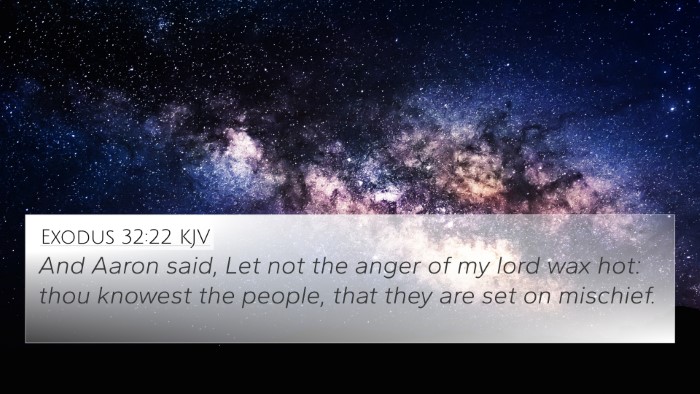Understanding 1 Samuel 15:21
Verse: “But the people took of the spoil, sheep and oxen, the chief of the things which should have been utterly destroyed, to sacrifice unto the Lord thy God in Gilgal.”
This verse provides insight into a significant moment in biblical history, where King Saul defies God's command concerning the Amalekites. This disobedience sets a tone of reflection on the themes of obedience, sacrifice, and divine judgment.
Contextual Analysis
The backdrop of 1 Samuel 15 involves God's command to Saul to completely destroy the Amalekites. Saul’s failure to execute this command leads to profound theological implications. Both Matthew Henry and Albert Barnes emphasize the notion of partial obedience being equivalent to disobedience. The commentary reveals how the people’s decision was influenced by a desire to offer sacrifices, presenting a conflict between true obedience and ritualistic worship.
Thematic Connections
This verse can be closely linked to several overarching themes in scripture:
- Obedience vs. Sacrifice: The emphasis in 1 Samuel 15:22 speaks to God's preference for obedience over sacrifice, echoing the criticisms found in Hosea 6:6 and Micah 6:8.
- Divine Judgment: The punishment that follows Saul’s disobedience reflects God's unwavering demand for complete fidelity, paralleling themes from Romans 6:23 regarding the consequences of sin.
- Worship vs. Compliance: The people’s act of preserving the spoils for sacrifice leads to examining the authenticity of their worship—a concept also explored in Isaiah 1:11-13.
Cross-Referencing Biblical Texts
For a deeper understanding, we can explore various cross-references. Some key verses in connection with 1 Samuel 15:21 include:
- 1 Samuel 15:22: Highlights that God prefers obedience over sacrifice.
- 1 Samuel 28:16-17: Illustrates the repercussions of Saul's disobedience and God’s withdrawal from him.
- Psalm 51:16-17: Provides insight into God's desire for a contrite heart rather than mere offerings.
- Hosea 6:6: “For I desired mercy, and not sacrifice; and the knowledge of God more than burnt offerings.”
- Micah 6:6-8: Discusses what the Lord requires—justice, mercy, and humility—over ritualistic worship.
- Matthew 7:21: Numerous individuals may call upon the Lord but true followers enact His will.
- James 1:22: Encourages believers to be doers of the word, not just hearers, forging a link to true obedience.
Interpretive Insights
Albert Barnes interprets this act as a reflection of the people's heart—their intentions appear noble, yet they contradict God's command. This draws attention to the importance of understanding that good intentions do not equate to righteousness. Adam Clarke further expounds on this, indicating that true sacrifice must stem from complete adherence to God's will.
The Lessons from 1 Samuel 15:21
- The Priority of Obedience: This verse teaches that the essence of worship is in obedience and sincerity, rather than in ritualistic acts.
- Consequences of Partial Obedience: Saul’s actions illustrate that partial compliance leads to severe consequences, relevant in discussions about sin and judgment.
- The Danger of Misplaced Priorities: The people's focus on sacrifice instead of obedience presents a cautionary tale for believers today about the importance of staying aligned with God's directives.
Conclusion
In summary, 1 Samuel 15:21 not only reflects Saul's failure and the people's misguided intentions but also serves as an enduring lesson about God's demands for obedience over mere acts of sacrifice. The sufficiency of God’s word, along with His desire for a loyal heart, resonates through both the Old and New Testaments.
This exploration of 1 Samuel 15:21 illuminates the importance of cross-referencing biblical texts to derive meaning and applications in contemporary understanding. For those interested in tools for Bible cross-referencing or how to find cross-references in the Bible, engaging in a deeper study of these themes can provide rich insights and transformative lessons.
Further Study Recommendations
For a comprehensive understanding of the connections between scripture, utilize resources such as a Bible Concordance or cross-reference Bible study guides. Engaging with Biblical commentaries, including Matthew Henry’s, Albert Barnes’, and Adam Clarke’s works, can greatly enhance one’s interpretive skills. Look for additional cross-reference materials to explore parallels, thematic connections, and inter-Biblical dialogue that enrich your study of the Word.





